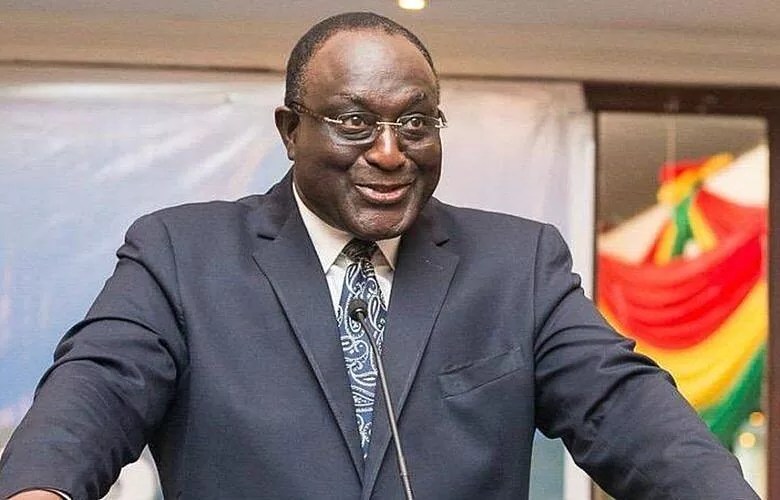8 Reasons Ghanaians Are Crying for Change – Alan Kyerematen
By Kafui Dey
Alan Kyerematen, leader of the Alliance for Revolutionary Change, has highlighted eight pressing reasons why Ghanaians are demanding change in the nation’s political landscape. During a media engagement, he called for a shift away from the established political duopoly and outlined a comprehensive plan for the country’s transformation.
1. Transition from Political Duopoly:
Mr. Kyerematen criticised the dominance of the National Democratic Congress (NDC) and New Patriotic Party (NPP) over the past 32 years. He argued that the current poor economic conditions do not justify the continued leadership by these two parties, stating, “Ghana’s economy is in distress, and both the NPP and NDC have failed to deliver lasting solutions.” Acknowledging some progress in specific sectors, he emphasised that the overall economic balance is unfavorable. He called on the media to play a responsible role in shaping public opinion by demanding substance from those seeking national leadership, rather than focusing on sensationalism. According to Mr. Kyerematen, “Ghanaians are looking for an alternative as the NPP has shown they can’t do the work, and the NDC is not a viable option.”
2. Ending Political Polarisation:
Mr. Kyerematen expressed concern about the politicisation of every issue in Ghana, describing it as senseless and detrimental to national progress. He advocated for the election of an independent candidate to act as an honest broker, serving the interests of all Ghanaians. “We need someone who will prioritise the needs of the nation over political affiliations,” he said.
3. Dismantling the Winner-Takes-All Syndrome:
Criticising the existing political culture, Mr. Kyerematen highlighted the issue of political appointments being reserved exclusively for members of the winning party. He questioned the exclusion of talented individuals based on political affiliation. “Does it make sense for talent in the country to be excluded because you are not a politician?” he asked.
4. Inclusive Governance:
The leader pointed to the protests and dissatisfaction among labour unions, teachers, and nurses as indicators of their exclusion from policy formulation. He stressed the need for a more inclusive and representative governance structure that utilises the entirety of society. “When various sectors of society are excluded from policy-making, it leads to unrest and dissatisfaction,” Mr. Kyerematen noted.
5. Ensuring Continuity in Governance:
Mr. Kyerematen highlighted the lack of continuity in governance as a major issue, noting that successive governments often abandon existing projects, leading to corruption and resource wastage. He called for an end to this practice and urged for continuity that honours the legacy of past leaders like Kwame Nkrumah. “There must be no debate about the pride of place of Kwame Nkrumah in our history,” he added.
6. Moving Beyond Manifestos and Slogans:
Emphasising the need for substance in political discourse, Mr. Kyerematen criticised the focus on soundbites and slogans. “Why vote people into government based on statements and soundbites? Are we no longer dealing with substance?” he asked, urging Ghanaians to demand detailed policies and plans from their leaders. He stressed that mature economies succeed because of their focus on substance over rhetoric.
7. Constitutional Reforms:
Mr. Kyerematen pointed to the outdated 1992 Constitution as a hindrance to Ghana’s transformation and called for urgent changes and reforms. “The lack of constitutional reforms is a major reason why we are not transforming as a nation,” he asserted.
8. Behavioural and Mindset Change:
Stressing that no change will happen without a shift in mindset and behaviour, Mr. Kyerematen urged Ghanaians to move away from negativity, the “pull-him-down” attitude, and the “NATO” (No Action Talk Only) approach. He advocated for a change in work ethic and punctuality, calling for a culture where productivity is prioritized. “If it rains, nobody goes to work; programs start late. All this must change,” he said.
In addition to these points, Mr. Kyerematen introduced the Great Transformational Plan (GTP), which he described as “pregnant with meaning.” He emphasized that the GTP aims to move Ghana from instability to stability, growth, resilience, and prosperity. He recommended the GTP to all Ghanaians and appealed to the media to focus on constructive narratives. “The destruction is enough; it’s time for construction. The GTP is the new Bible for Ghana, what is needed to transform Ghana in three years,” he concluded.

